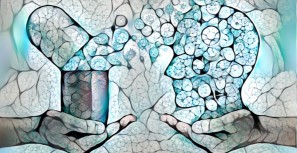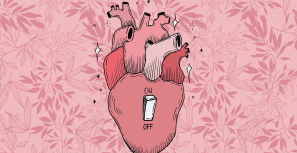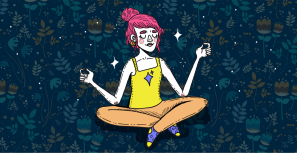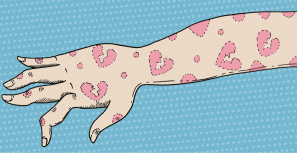Existentialism is a school of philosophy that was influential in the 1940’s and 50’s, although in retrospect, there were several important forerunners of existentialism in the 19th century. This would include Kierkegaard and Nietzsche.
Existentialism is a thoroughly modern philosophy. With the advent of science in the seventeenth century, people began to lose faith in their traditions, especially their religious traditions. This happened because many of the core beliefs of our religions appeared to be untenable in the light of science.
This led many people to doubt, in general, the veracity of their traditions in which they were raised. The function of a traditional culture is to give meaning to a person’s life. It tells you what your place is in the universe. It tells you what you are to do with your life. It tells you how you are to relate to your desires, and much more.
As people shed their belief in the truth of their traditions, they began to seek their own meaning for life — which is a rather large undertaking.
Existential philosophy is a body of thought that talks about the value of seeking your meaning for life, and the value of leaving behind tradition and seeking your own destiny.
Existentialism also talked about the difficulties of pursuing your own path, and one of the difficulties it discussed was anxiety. For existentialists, anxiety is the fear that comes when you leave your traditions behind and strike out on your own.
You are taking a chance when you decide to figure out your own life. Perhaps you will make a mistake. Perhaps you will take the wrong path. Perhaps your friends and family will reject you because you have left the tradition that all of you have shared. It can be scary.
克尔凯郭尔而个人的困境seeking his own meaning and destiny to a person standing on the edge of a cliff. Kierkegaard says this man is scared of falling, and yet at the same time, he wants to leap. Such is the state of modern life in which many of us are forging our own new ways of life.
Kierkegaard saw this anxiety as being a healthy response to the quest for authenticity. Here is a quote from Kierkegaard about anxiety: “If man were a beast or an angel, he would not be able to be in anxiety. Since he is both beast and angel, he can be in anxiety, and the greater the anxiety the greater the man.”
In other words, in Kierkegaard’s view, there is such a thing as a healthy anxiety. A healthy anxiety is an anxiety that arises within you when you try to find your own meaning in life and develop your own way of life. It is a sign that you are trying to create your own authentic path, and it takes a great deal of courage to face this existential anxiety and continue to forge your own destiny in the face of this anxiety.
This does not mean, of course, that all anxiety is healthy. The anxiety of the anxiety disorders can be crippling. At the same time, it raises the possibility that the disabling anxiety of the anxiety disorders may stem from a fear of setting off on one’s own path. A fear of jumping off of Kierkegaard’s cliff and facing the uncertainty and criticism that might follow.









